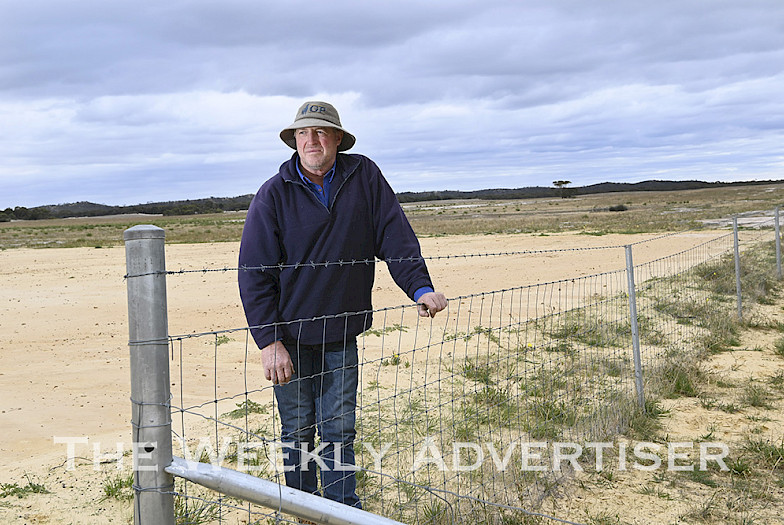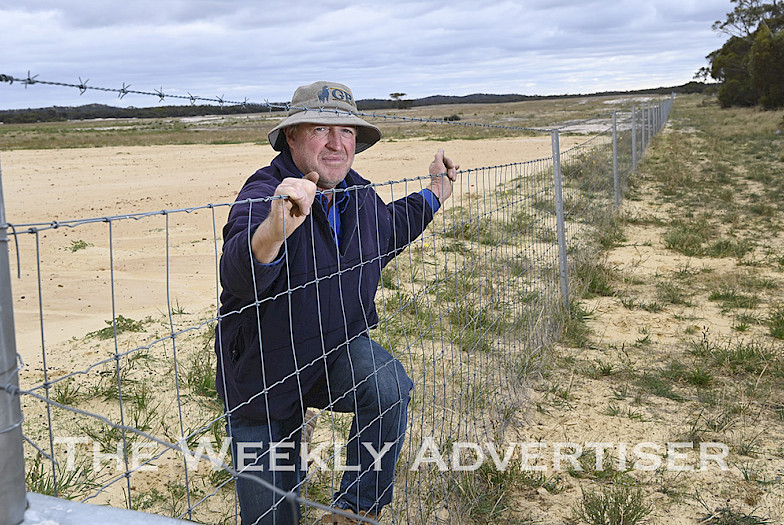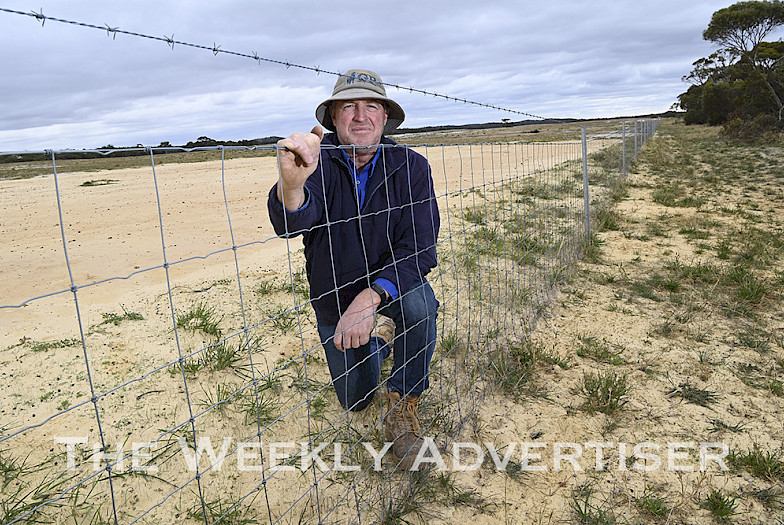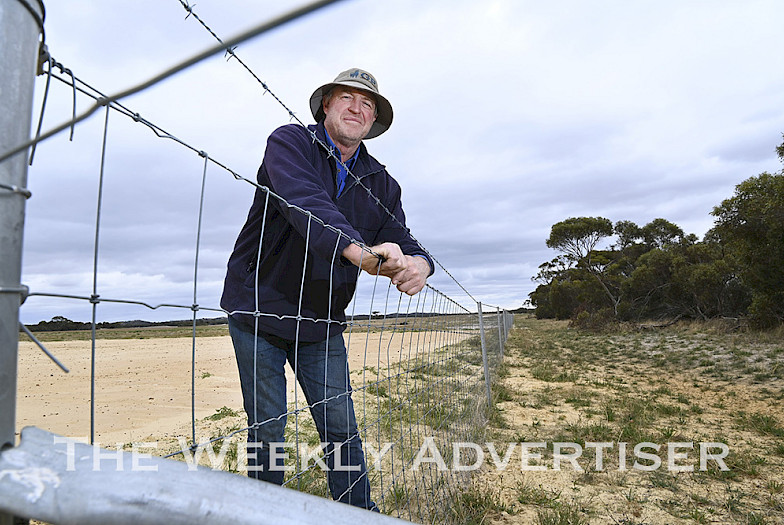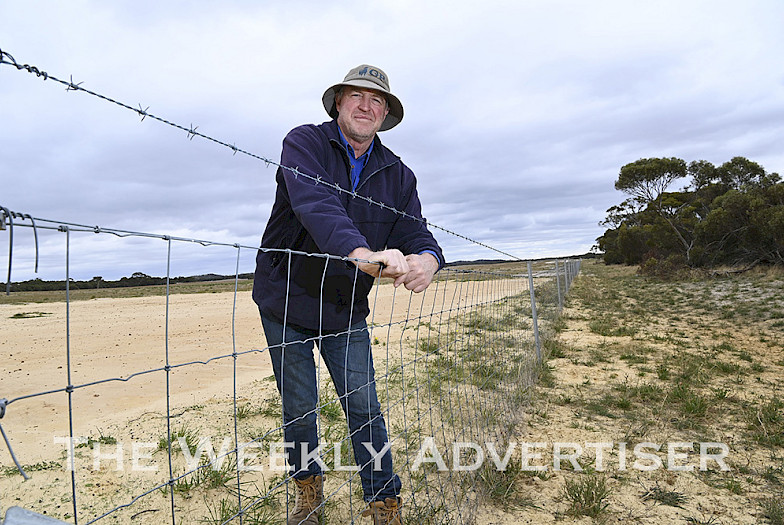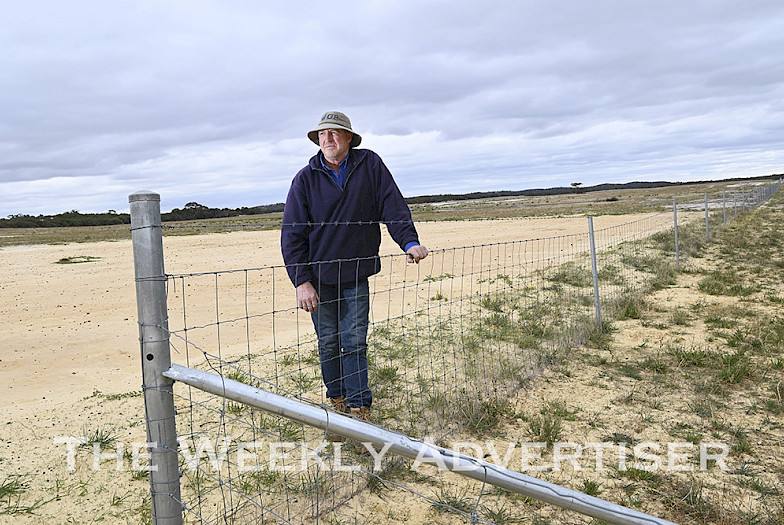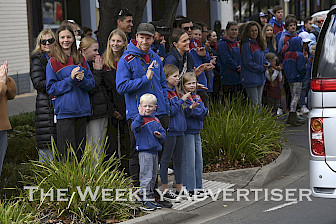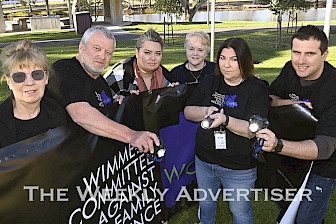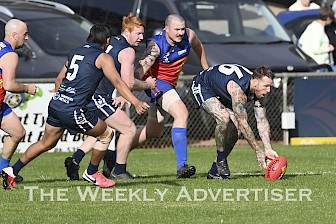Mr Bennett said the changes coincided with a dry time of year, which resulted in the wild dogs leaving the park seeking water.
“The water is on the open country, and then if there’s sheep around, well then they’ll start attacking them,” he said.
“In the past, those dogs that have been causing trouble have been trapped and removed, or killed.”
Mr Bennett said the changes needed to be reversed and the unprotection order to remain for wild dogs coming onto private land.
“We just need to go back to the system we had that was established more than 30 years ago. It was established through some very hard work from local people to recognise the fact we have a wild dog population in the Big Desert that has to be managed sustainably,” he said.
“The reason there are still wild dogs in the Big Desert, and they’re claiming now they’re genetically so pure, is testament to the management program that has been undertaken throughout the past 30 years. It’s not in spite of it.”
Mr Bennett said the previous system had been a win-win.
“It’s been a win for the dogs. They’re kept inside the park. They’re managed at a sustainable population when they get displaced through overbreeding or dry conditions and push out into the open country where they’re controlled and removed,” he said.
“And there’s minimal stock losses to the farmers around the edge of the Big Desert.
“Now, it’s a lose-lose. So a system that was working absolutely beautifully and relied on the generations of accumulated knowledge and experience of these local trappers to track and trap these troublesome dogs, only around the edge, not out in the park... the ones that are causing that, that’s going to go.”
Mr Bennett said the situation was an ‘absolute disaster now’.
“This will just continue to happen, unabated. Dog population will breed up to the unsustainable, they’ll push out in the open country, and attacks like we’re having, they’ll just become common now,” he said.
“It’s absolutely heartbreaking.”
Mr Bennett argued the animals were wild dogs, not dingoes.
“They look nothing like a dingo. They’re a wild dog,” he said.
“There’s been no consultation with landowners or the VFF or any of the parties that have been managing it.
“Now the stroke of a pen, it’s a lose-lose situation, so the dogs can do what they like.”
Mr Bennett said nobody could tell the affected farmers why the decision was made.
“The other sad part is that a small group of landowners will have to carry the full cost of this decision,” he said.
Mr Bennett said the $550,000 government funding announced to assist farmers for other control methods would not actually help on-the-ground.
He said the government’s assurance that farmers experiencing stock losses could apply for Authority to Control Wildlife permits was not working.
“It’s just become a political hot potato and nobody wants to tackle it,” he said. “It’s soaked up an enormous amount of my time and effort following up on this and trying to provide information to the relevant authorities about the attacks we’re getting.
“Basically, I just get the impression they don’t believe it’s happening.
“I’m the one who’s supposed to prove everything.”
Mr Bennett said in the time it took for a response about his permit application, there had been multiple attacks on his property.
“We can’t tell the dogs to go on holidays while they sort it out,” he said.
“So they’ve made the decision, but they don’t have the processes around to be able to react quickly enough to say I’m allowed to trap a dog killing my sheep.”
Mr Bennett said the wild dog attacks were particularly gruesome.
“They don’t kill the sheep, they actually eat them alive,” he said.
“They’ll go and bite multiple sheep until they find one that’ll flop. Then they just start eating them until the sheep eventually dies from blood loss or shock or whatever.
“Then they’ll come back tomorrow if they want to and they won’t eat the carcass of the one they killed yesterday. They’ll go and attack another 10 or a dozen until they find one that’ll flop or give up and then they’ll eat that one alive.”
RELATED: VFF calls for commitment to manage wild dogs
The entire April 24, 2024 edition of The Weekly Advertiser is available online. READ IT HERE!
The entire April, 24, 2024 edition of AgLife is available online. READ IT HERE!
